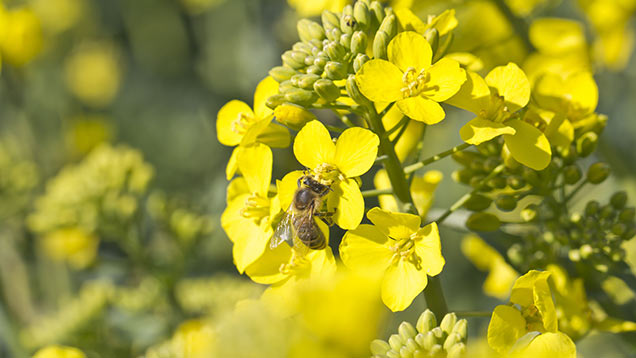Bayer loses pesticide bee harm court case
 ©WestEnd61/Rex
©WestEnd61/Rex German agrochemical giant Bayer CropScience has lost its attempt to prevent German Friends of the Earth, the Association for the Environment and Natural Germany (Bund), from making claims its neonicotinoid thiacloprid harms bees.
The dispute centred around claims by Bund in a German publication that two pesticides produced by Bayer – Calypso and Lizetan Ornamental Plant Spray – that contain the active ingredient thiacloprid were harmful to bees.
Both products are officially approved and classified as non-hazardous to bees.
See also: Research to eliminate unnecessary pollen beetle sprays
However, Bund claimed it was “misleading” for Bayer to state on the packaging of these two products that they were “bee friendly” and “bee safe”.
Bayer took out an injunction against Bund, in a bid to prevent the group from making such accusations about its products.
However, a judge at Dusseldorf Regional Court ruled on Wednesday (11 March) that Bund had a right to voice its concerns.
He reversed Bayer’s injunction and said Bund’s statements were covered by freedom of expression, rather than on the science of the claims.
A written summary of the judge’s ruling will be published in German at a later date.
Green campaigners have voiced serious concerns about the impact of some of Bayer’s products on bees, including those containing the neonicotinoid thiacloprid, which is used by farmers and gardeners in the UK.
Thiacloprid is used on crops in the UK such as oilseed rape and apples and it is sold to the public in garden bug-killing products.
Bayer said it was “disappointed” by the judge’s decision and would wait to receive the written judgment before deciding whether to challenge the decision.
A Bayer spokesman said: “Bayer CropScience regrets the decision by the Dusseldorf Regional Court taken on Wednesday March 11 to revoke the injunction previously imposed against Bund and in favour of Bayer.
“Even though the court once again pointed out that the Bayer products had officially been classified as ‘not harmful for bees’ and were labelled as such in accordance with binding legal regulations, the court considered the allegations of Bund to be a free expression of opinion, which deserved special protection.
“Bayer CropScience will wait for the written grounds for the judgment and subsequently consider potential further steps.”
“Bayer CropScience had filed the injunction with the argument that the Bund publications on the Bayer garden products Calypso and Lizetan Ornamental Plant Spray are incorrect.
“Both products have been thoroughly tested both by Bayer and by the state regulatory authority, the German Federal Office of Consumer Protection and Food Safety (BVL).
“They underwent an in-depth evaluation and as a consequence were classified as not harmful for bees.”
Three other neonicotinoid pesticides linked to a decline in bee health, including the Bayer neonicotinoid imidacloprid, are currently subject to a two-year temporary ban across the EU.
